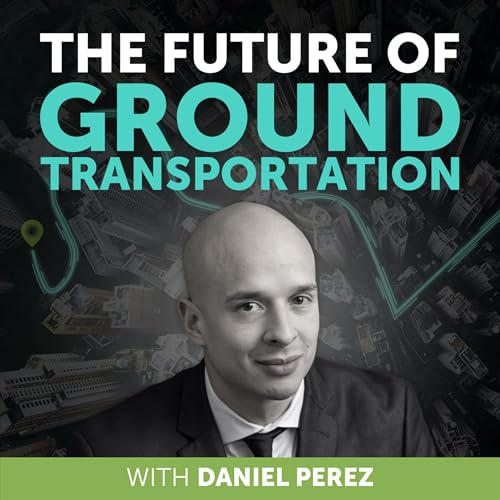Join us on "The Future of Ground Transportation" as host Daniel Perez dives deep into a conversation with Greg Moran, the trailblazer behind ZoomCar. Discover how this innovative platform is redefining urban mobility across emerging markets through a unique peer-to-peer car sharing model. From Greg's unconventional journey from Wall Street to launching ZoomCar, to the strategic focus on sustainability and electric vehicles, this episode unpacks the vision, challenges, and future of urban ground transportation. Learn about ZoomCar's commitment to enhancing accessibility, reducing carbon footprints, and empowering micro-entrepreneurs across India, Indonesia, and Egypt. Don't miss these insights into the evolving landscape of ground transportation, sustainability, and the role of technology in shaping the future of our cities.
Here are some power takeaways from today's conversation:
Innovative Approach to Urban Mobility
Peer-to-peer business model and its impact
Strategic focus on emerging markets
Sustainability and the integration of electric vehicles
Episode Highlights:
Innovative Approach to Urban Mobility:
Greg Moran founded ZoomCar to address the challenges of car sharing and rentals in emerging markets. With a focus on technology and sustainability, ZoomCar aims to transform urban mobility by creating a dynamic two-sided marketplace similar to Airbnb or Turo, but specifically tailored for markets like India, Indonesia, and Egypt.
Peer-to-Peer Business Model:
ZoomCar operates on a peer-to-peer marketplace model, where individual vehicle owners (hosts) can rent out their vehicles to others. This model encourages micro-entrepreneurship and does not involve ZoomCar owning vehicles directly, which differentiates it from traditional car rental services.
Focus on Emerging Markets:
Greg highlighted ZoomCar's strategic decision to operate in emerging markets, where there is a lower rate of car ownership and a higher demand for accessible transportation solutions. This focus allows ZoomCar to address a unique set of mobility needs, leveraging the lack of competition and the vast potential for market penetration in these regions.
Commitment to Sustainability:
Sustainability is a core ethos of ZoomCar, driving the company to integrate electric vehicle (EV) capabilities into its platform. By encouraging the inclusion of electric vehicles and building partnerships for EV infrastructure, ZoomCar aims to foster a more sustainable urban transportation ecosystem, aligning with global efforts to reduce carbon emissions.
Resources Mentioned:
To stay in touch with Greg Moran, you can connect with him on LinkedIn.
You can also reach out via website www.zoomcar.com or Zoom’s Linkedin.
About the Guest
As the Co-Founder and CEO of Zoomcar, Greg Moran spearheads the entire operation of the Bangalore-based self-drive car rental company, which is the leading marketplace for car sharing in emerging markets. Greg believes that sustainability is the most important issue for the next 100 years and has dedicated his entire career to sustainable development across the globe.
Moran is a seasoned thought leader who can speak broadly to mobility + transportation trends in emerging markets – the rise of ridesharing, offsetting carbon emissions and creating micro-entrepreneurs.
Prior to starting up Zoomcar, Moran has held positions in investment banking, private equity, corporate business development, and energy policy formulation with Fieldstone Private Capital Group, Cerberus Capital, International Power, and the City of New York respectively.
 25 mins
25 mins 32 mins
32 mins 18 mins
18 mins Jul 31 202423 mins
Jul 31 202423 mins Jun 19 202440 mins
Jun 19 202440 mins 45 mins
45 mins 26 mins
26 mins 23 mins
23 mins